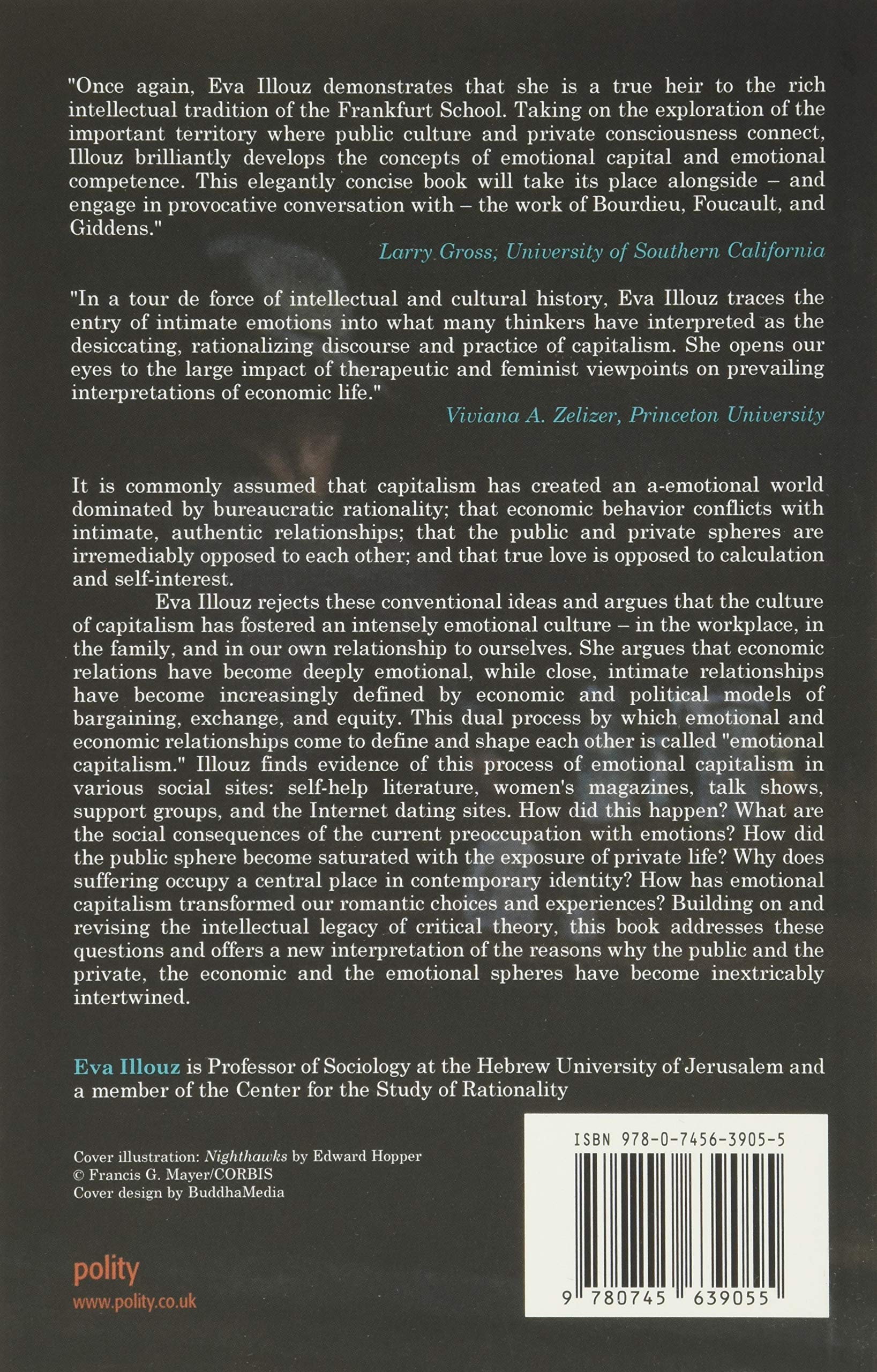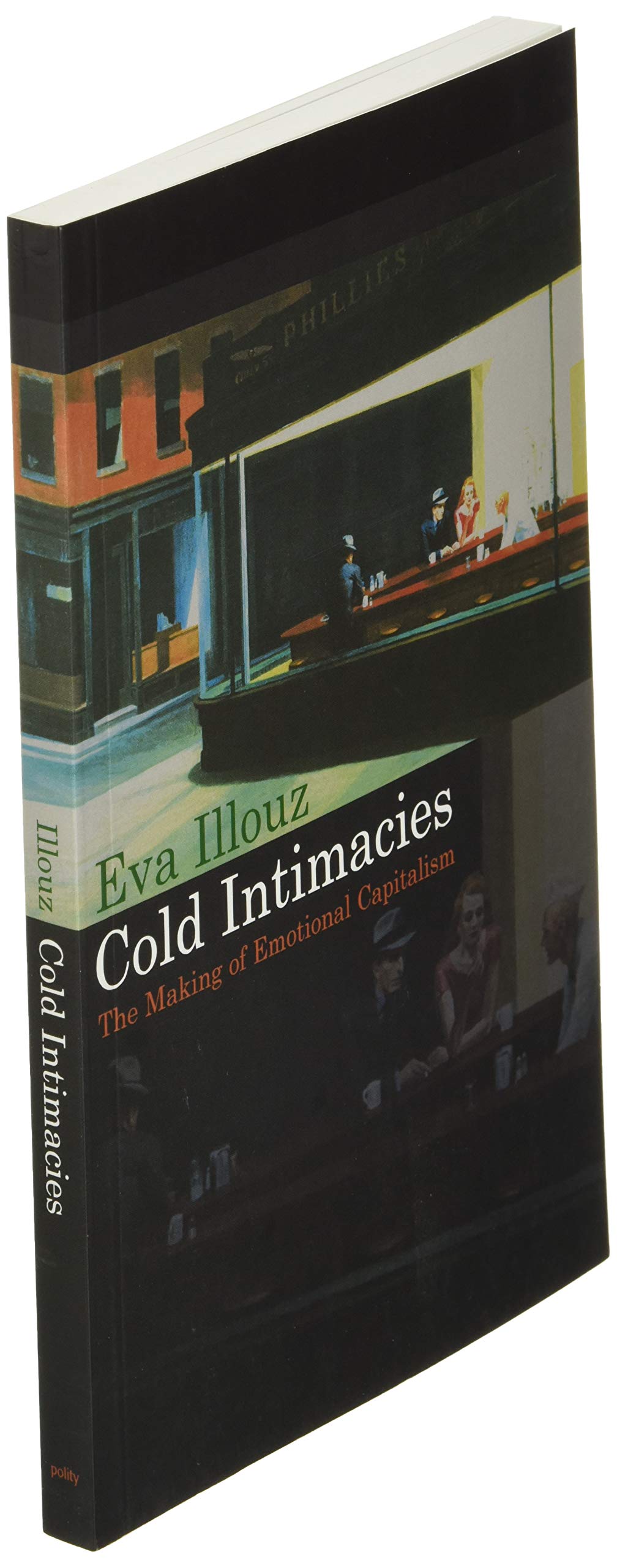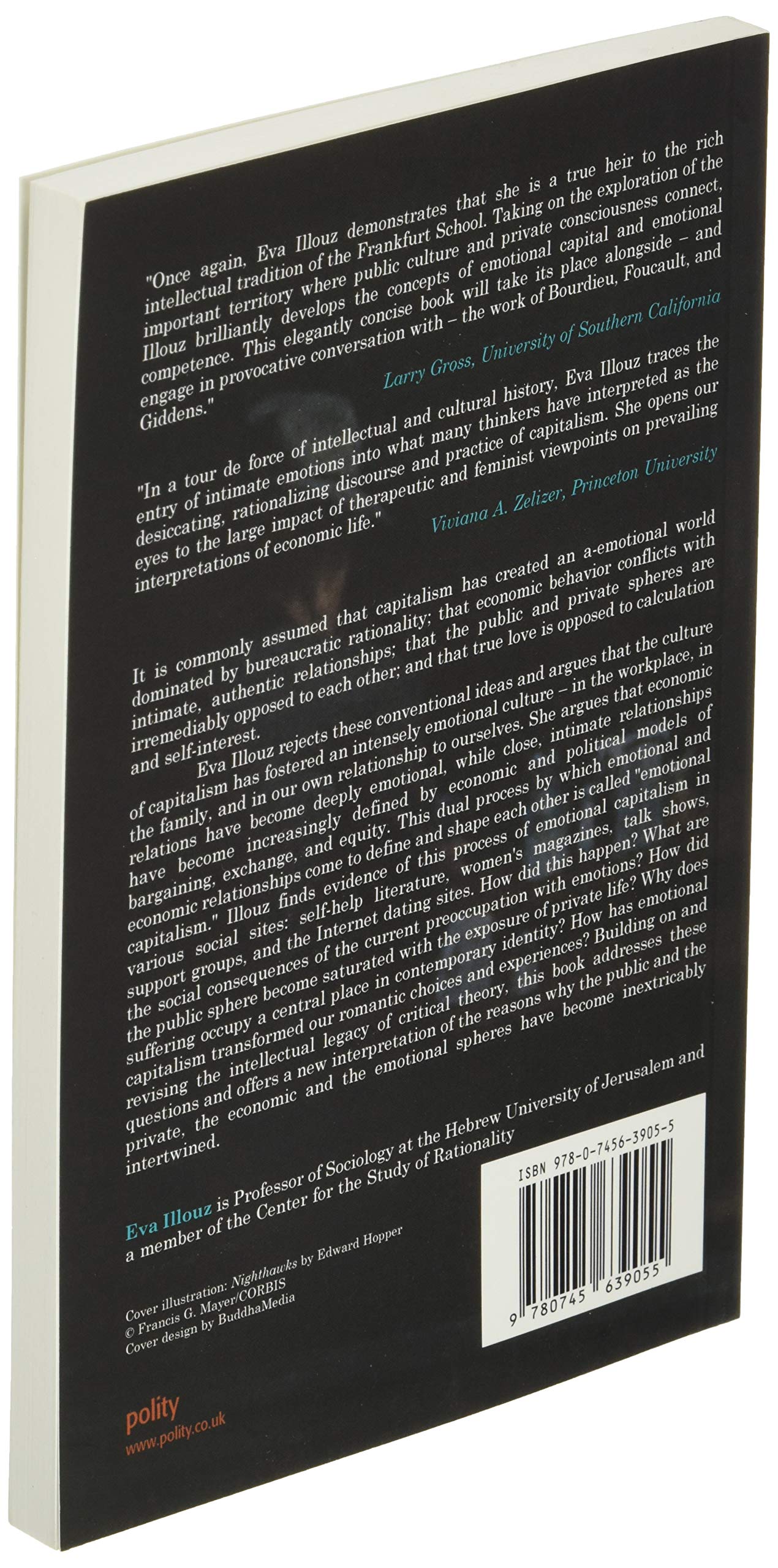Some deliveries may take a little longer than usual due to regional shipping conditions.
Customer Services
Copyright © 2025 Desertcart Holdings Limited






Full description not available
M**N
A highly original, profound and provocative theory
"Cold Intimacies" by Eva Illouz introduces a highly original, profound and provocative theory about how emotional and economic forces have found common interest in creating what she calls "emotional capitalism." The book is composed of three lectures that Ms. Illouz prepared for a series of presentations made at the Adorno Lectures in Frankfurt, Germany. The author's scholarly credentials are evident both in how she creates a very compelling argument and in her selective use of supporting documents; although somewhat densely written, the book's progression rewards the patient and studious reader with a number of invaluable insights and discoveries about contemporary society.The first lecture recounts the history behind the rise of 'homo sentimentalis'. Ms. Illouz contends that the emotional style of the 20th century was shaped by the wide dissemination of Freudian theory in popular literature and the scientific management and human relations disciplines of Fordist America. Interestingly, Ms. Illouz believes that as communications skills became increasingly important to family and workplace, gender roles were slowly and subtly transformed with greater emphasis on the feminine traits of listening and cooperation. Eventually, this dynamic gave impetus to the feminist movement of the 1970s which in turn helped to codify the therapeutic regime into an array of publicly-funded family, mental and health services that we often take for granted today.The second lecture describes how the creation of 'emotional capital' has fed myriad opportunities to the entrepreneurial class. For example, Ms. Illouz discusses the pervasiveness of the self-help movement in the mass media in the form of popular programs such as Oprah Winfrey's. Ms. Illouz recounts how the government first recognized post-traumatic stress disorder in the wake of the Vietnam War while pharmaceutical companies began to exploit patient's fears in order to sell remedies to manufactured illnesses. The author also argues that emotional intelligence has become an important currency to possess against the job insecurities of the post-Fordist era.The third lecture positions Internet dating at the apex of emotional capitalism. Ms. Illouz describes a disembodied process that fuses the logic of consumerism, psychology and capitalist production processes. She suggests that the commodification of emotional self-introspection sacrifices the romantic notion of love at first sight to the efficiency of the market; she cites evidence that this model unfortunately tends to inculcate cynicism among end users because it inhibits the intuitive processes that usually bring partners together. Throughout this chapter, the reader is thoroughly impressed with Ms. Illouz's exceptional perception and intelligence as she skillfully deconstructs a cultural practice that, in light of her startling conclusions, might well be considered to be poorly understood by most other social scientists.I highly recommend this brilliant book to everyone, and especially to those interested in the social sciences, feminism and psychology.
M**R
Recommended reading
Excellent analysis of “emotional capitalism.” Currently reading another book along similar lines : “The Gift: Imagination and the Erotic Life of Property” by Lewis Hyde.
J**.
Five Stars
This is a brilliant and thought-provoking book.
C**G
Read Arlie Hochschild instead.
This is essentially Arlie Hochschild translated via Bourdieu and Foucault, without citing Hochschild.Read:The Managed HeartThe Second ShiftThe Commercialization of CareDo NOT read this.
Trustpilot
3 days ago
1 month ago